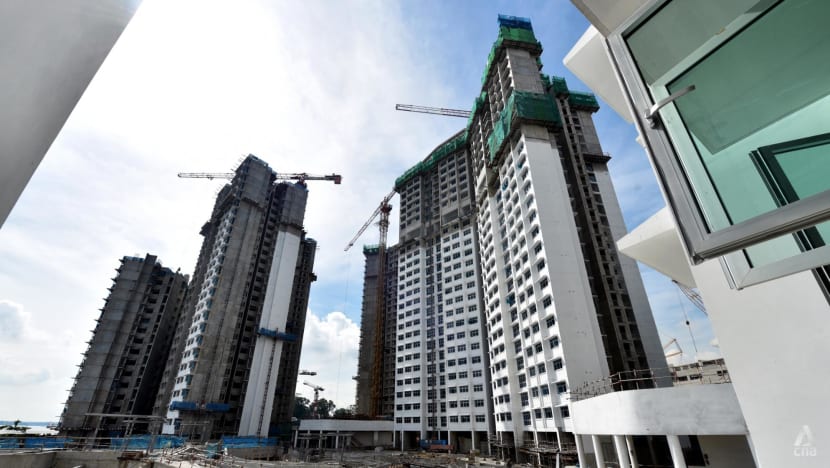HDB monitoring supply chain situation; BTO delays remain in the range of 6 to 12 months

SINGAPORE: The Housing and Development Board (HDB) said that it will continue to monitor the supply chain situation amid “ongoing global geopolitical uncertainties” and the COVID-19 developments in China, as the range of delays for most Build-to-Order (BTO) projects remains between six to 12 months.
On Monday (Apr 11), The Straits Times reported that flat buyers in at least three BTO projects were informed of further delays to the completion of their homes.
Buyers at Tampines GreenCourt, Clementi NorthArc and Woodleigh Hillside BTO projects who were expecting their flats to be ready in the third quarter of this year now have to wait between three and six months more.
In response to CNA’s queries, HDB said that the construction sector is hard-hit by the ongoing COVID-19 pandemic, although it has been able to “catch up on some projects” by working closely with contractors and providing support measures to mitigate the extent of delays.
"However, the extent of delay varies by project, and depends on site-specific factors such as manpower availability, on-site technical challenges, the contractor’s performance and available supply of materials," said HDB.
"The ongoing global geo-political uncertainties and worsening COVID-19 situation in China also add further uncertainties to the supply chain situation, and we continue to monitor these developments very closely."
It added that delays have “largely remained” in the range of six to 12 months, except for projects with exceptional circumstances such as Waterway Sunrise II in Punggol.
For ongoing projects, HDB said it expects most flat buyers to be able to move into their new homes within four to five years after booking their flats, barring any unforeseen circumstances.
“The current median waiting times of projects launched in 2020 and 2021, after factoring in delays due to the COVID-19 pandemic, are about 4.5 years and 3.8 years respectively,” said HDB.
PERIODIC UPDATES ON PROJECTS
The statutory board also said that affected buyers are updated “periodically” on project timelines and revised completion dates of their new flats.
They will be notified of any changes to the probable completion dates at various points during the construction phase.
The first delay notification usually takes place at the 18-month mark before the probable completion date to allow affected flat buyers time to source for alternative interim housing.
“As the construction progresses, we will reach out to buyers at periodic milestones before their projects’ probable completion dates and will inform them of any further delays to their projects. These letters will be sent closer to the project probable completion date and are usually the second delay notification,” it added.
HDB also said it has not sent any third delay notices for BTO projects currently under construction.
“We recognise that the delays to the completion of new flats have caused inconvenience to flat buyers and affected their life plans, and flat buyers are understandably disappointed to learn of the delays,” said HDB, adding that it will continue to support those affected.
Those unable to secure alternative interim accommodation with their family members or relatives can contact HDB for assistance.
It will also consider waiving any forfeitures for those who wish to cancel their flat purchase to buy a resale flat.
"HDB will continue to work closely with our project contractor and consultants to expedite construction works as much as possible, without compromising the quality of the project, as well as the safety and well-being of workers," it said.
These efforts include various support measures such as cost sharing of COVID-19-related cost increases to help contractors through this period, as well as allowing construction activities that are "less noisy" to be carried out on Sundays and public holidays.
















